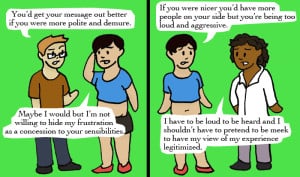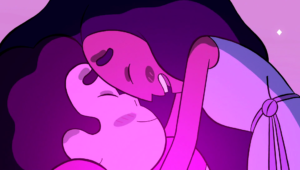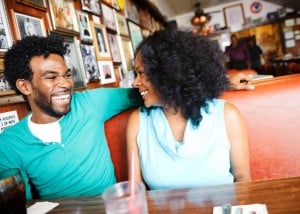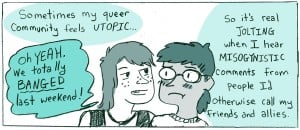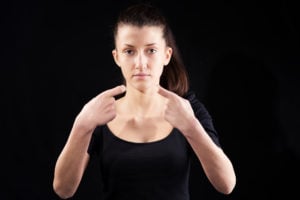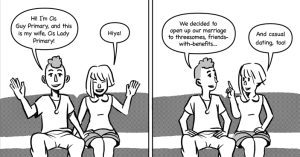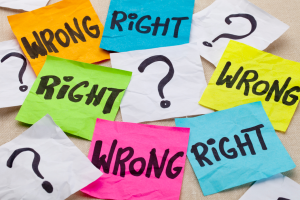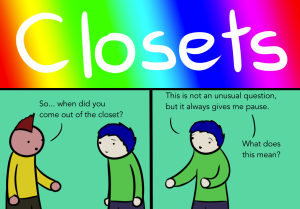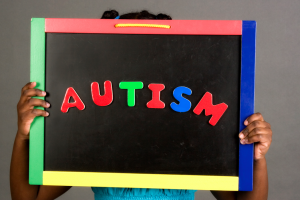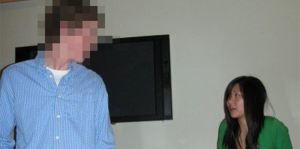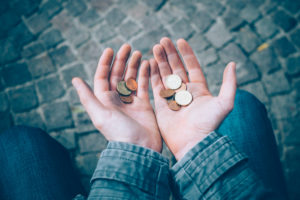
A Person holding coins in their open hands.
This article by Alaina Leary was originally published on Ravishly and republished here with permission.
This essay was originally going to be about millennial “I’m so broke” memes. You know the ones — the original poster says something about how nice it would be to have a cute apartment, how much they want nice curtains and big windows. And the comment underneath is like, “Millennials are so broke that we’re even romanticizing decent housing.”
Then I read the New York Times essay “What the Rich Won’t Tell You.”
When I was growing up, I didn’t know that we were poor. I’m not sure I knew what poor meant — or what rich meant — but I assumed that everyone lived like I did.
When elementary school field trips came with an out-of-pocket price tag, I thought other kids’ parents had to find ways to save for the extra $20. I assumed everyone was on the free lunch list and went to the park with their moms sometimes in the summer to get free lunches there, too — like my friends and I did. (Pizza days were the best, obviously.)
I felt the slight sting of inequality every once in awhile, like when we had to go around the room and talk about what we did over summer vacation and I realized some people’s families could afford cross-country and international travel, but for the most part, I didn’t know that I was poor because I didn’t know there was something else you could be.
But now, as an adult, I can say: There’s a lot the poor won’t tell you, too.
I won’t tell you about growing up in the projects, low-income affordable housing usually set off from the rest of the community to a degree, with rows of identical small apartments stacked side-by-side. Ours was light blue, number 152.
I won’t tell you about how my best friend’s family got a dog — you weren’t allowed to have a dog in the projects, but you could have cats — and how her face crumpled when the company in charge of maintaining our housing found out about their dog and took him away.
I won’t tell you about how being poor limits your choices, like where you can afford to live and whether you can have a dog, or about how a vast majority of the people who lived in our housing projects were working poor, disabled, people of color, and immigrants. Most went multiple generations of poor deep.
I will tell you about the time that a millionaire who’d grown up in our projects donated money so that the entire projects could see the Harry Potter films in theatres, starting with the first movie. How I’d never thought about what it meant to leave the projects — how that day was the beginning of my very first dream: “When I grow up, I’m going to be rich.”
I won’t tell you about the time all my friends at school started talking about after-school music lessons. I wanted to learn how to play the guitar, but the cost of equipment and classes was well over $500.
My mom told me that we’d “make it work,” but I didn’t believe her; after all, I’d seen her checking the couch’s sagging cushions for leftover coins before we walked to the local Stop and Shop to get groceries.
All of my recreational activities were cheap and most were free: The projects partnered with the local YMCA to offer arts, crafts, gymnastics, and more, and when I got older and moved out of the projects with my dad after my mom died, he scoured pamphlets at the library until he found a free community book production program he thought I’d like.
Writing about wealth or rich people (or in contrast, poverty or poor people) isn’t a problem, and I actually enjoyed the reporting on why rich people buy $6 bread, although I didn’t find it that shocking — I live in Boston and I currently buy bread that costs about $4-5 for a loaf. I don’t consider myself poor anymore, which makes a difference from the no-more-than-$1 rule my parents always had for products like bread, hamburger buns, and bagels.
I think we need more reporting on income inequality, ideally from reporters who have experienced it themselves. Journalism and fiction both have the power to change public opinions and individual minds about poverty and wealth, and can inspire systemic change.
But I’m also ashamed of having grown up poor. It’s my best-kept secret. It’s something I thought about as I was filling out the FAFSA for my first year of undergrad and got back a message that it “wasn’t possible” that my dad’s income was so low.
It was what I thought about when I fought with financial aid representatives every single semester for grants to help cover out-of-pocket costs like books and supplies, because as I explained to them, my family really couldn’t shell out $500 for textbooks or $150 for bus tickets home for required Thanksgiving breaks or $200 for business casual internship clothes.
I’ve gone out of my way to make myself seem middle class, like the time I used a Target credit card to buy my groceries for a month because my financial aid from the college hadn’t come through and I didn’t know how to explain to my roommates that I had absolutely no cash until my on-campus part-time job started and I got paid.
Or my embarrassment when my dad couldn’t pay our phone bill when I was a college junior and I returned to campus with no cell phone — saying “It’s broken, so I’m just getting an iPhone” — until my paycheck came in and I took on my own monthly phone bill.
These are the poor person’s versions of taking the tags off our belongings, but almost all my friends are middle or lower middle class, so they wouldn’t be ashamed for me if I told them I found a dress on clearance or bought a bunch of shoes secondhand at a thrift store.
Like rich people, I feel an immense sense of guilt whenever I do spend “a lot” of money. A lot of money has changed in meaning for me; it used to be $20, but now that I’m creeping into middle class (with debt from a graduate and an undergrad degree) it’s more like $100 and even that depends on the day, what I’m buying, how financially secure I feel.
The secret is that historically low-income people — what I call myself because it’s not accurate to use “poor” but “middle class” doesn’t cover what it feels like to cross your fingers under a pile of blankets and hope your heat isn’t shut off from nonpayment in January — will probably never feel like we’re financially secure.
Every time I treat myself to dinner at the Legal Seafood’s harborside location in Boston, which is my favorite because they have sushi on the menu and a rooftop bar, part of me thinks: Should I spend this $15? Will this be the very last time I can afford this restaurant?
And another part of me thinks: I should spend this $15. This may be the very last time I can afford this restaurant. As my cousin Nicole would say in the vein of Samantha Irby (and this may be a poor person thing to say too), “I’m not trying to live forever!”
Historically low-income people and currently poor people are forced by society to justify our existence. Every choice we make is scrutinized. If we fit in with the stereotypes and poverty myths, we’re screwed. If we don’t, we’re also screwed.
When I tell people I grew up so poor — and I try not to define our poverty in real numbers for them, because maybe if I don’t spell it out using figures they won’t be able to label me — I don’t usually tell them why I was poor.
I don’t talk about my disabled mom, who was on SSDI because working became too difficult, how she had a bachelor’s degree in science and originally wanted to become a marine biologist but worked as a blood technician instead. I don’t discuss intergenerational trauma, disability, or inherited poverty.
I don’t tell them about my dad, from a working-class background, who didn’t go to college but worked at Northeastern in physical labor, and for most of my life was a cab driver. I never spell out what SSDI payments or a cab driver’s wages amount to.
I don’t want to give people any more reason to scrutinize my Facebook status about getting lobster (on sale) with my dad for New Year’s Eve (after days of eating $1 frozen pizza and mac and cheese) so we could celebrate and actually enjoy our meal.
If I can help it, I won’t tell you anything about what being poor looks like.
I write a lot about systemic inequality, especially as it relates to education and the publishing industry because I have two post-secondary degrees and work in a predominantly upper-middle-class field.
But that doesn’t mean I tell people that I love walking home from the train station near my house because, unlike driving, walking feels like home to me, because when you’re low income and your mom is visually impaired, you spend your entire childhood walking.
Public transportation and walking are how poor people get around, and even though I rushed at the first chance I could get to buy a car that didn’t have over 150,000 miles on it, I miss saying hello to my neighbors when we passed them on our way home from the movies.
Growing up, I was those millennial memes. I didn’t always know that we were poor, and I loved living in the projects, but past due collection notices filled me with dread. I was terrified of losing the electricity or the Internet access or the heat because we hadn’t paid in time.
Sometimes I wished we could buy brand name Oreos and $6 loaves of bread. All I wanted, most days, was a cute apartment with big windows, sheer curtains billowing in the breeze, where I could sit comfortably and read a book.
I was raised poor, and I know that if I want things to change, that’s something I need to talk about, along with the privileges I have as a white, college educated person in an urban location.
Because I want people to realize that income inequality doesn’t have a unified face, it’s a system that we’re all a part of, and we all should be a part of the solution.
I have that cozy apartment now and I was even allowed to paint the walls, so our bedroom is lavender; it’s the first time I’ve ever lived somewhere that I could paint anything but white. We can’t have a dog, but that’s a choice we could afford to make. And we all deserve choices.
[do_widget id=’text-101′]
Alaina Leary is an Everyday Feminism Reporting Fellow. She is a Bostonian currently studying for her MA in publishing at Emerson College. She’s a disabled, queer activist and is on the social media team at We Need Diverse Books. She can often be found re-reading her favorite books and covering everything in glitter. You can find her at her website or on Instagram and Twitter @alainaskeys. Read her articles here.
More from Ravishly:
- Your Obsession With Travel Sure Feels Classist To Me
- Why I Still Shop At Walmart Even Though Everyone Says Not To
- Cop Buying Diapers For A Struggling Mom Illuminates The Stark Truth Of Babies In Poverty
Search our 3000+ articles!
Read our articles about:
Our online racial justice training
Used by hundreds of universities, non-profits, and businesses.
Click to learn more





